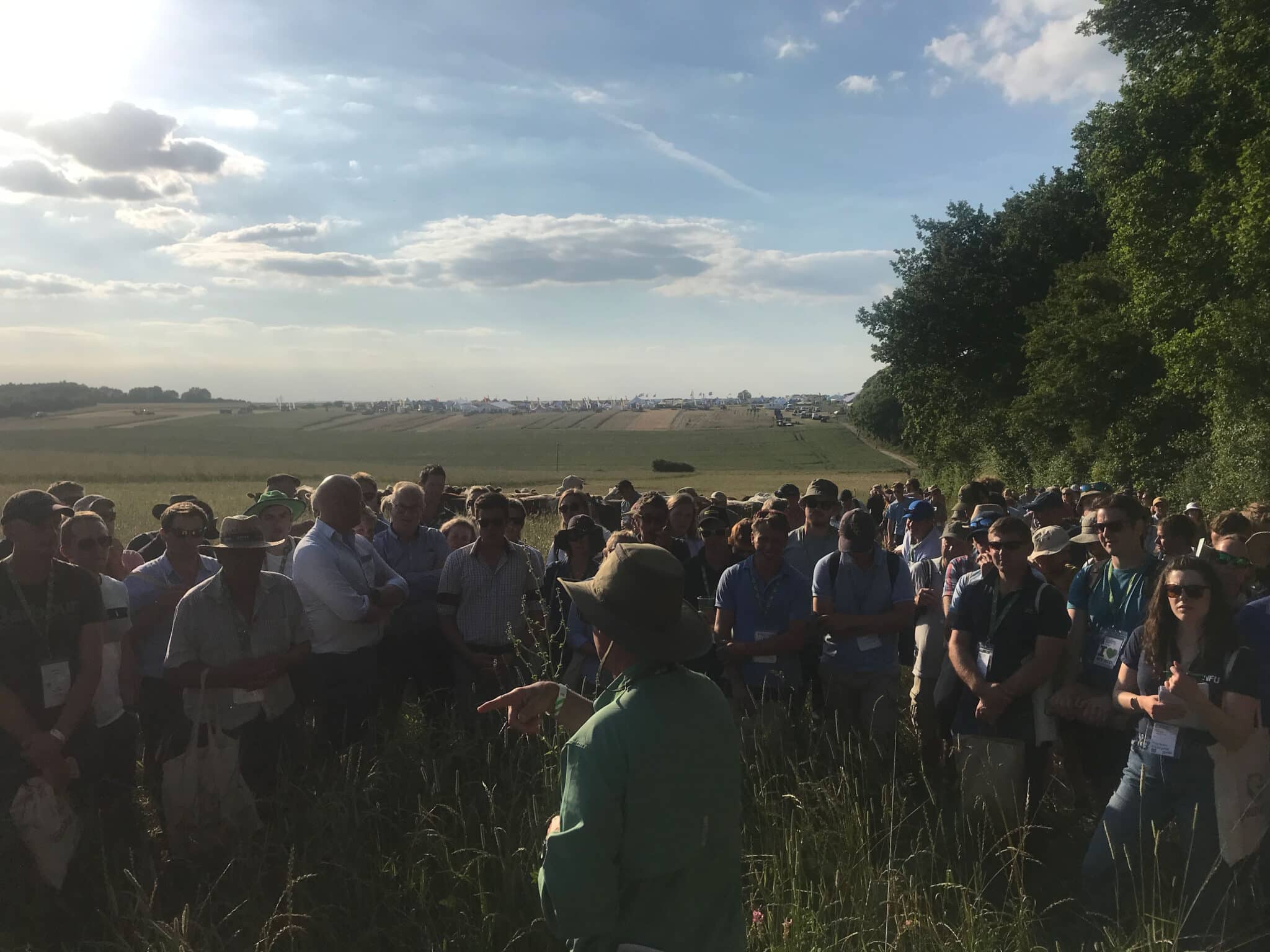Regenerative Thinking is a new regular column for Wicked Leeks by Nathan Einbinder, programme lead at Schumacher College, on food, farming and social change.
In many parts of the world, the transition to sustainable agriculture (for lack of a better word) is inseparable from greater social, economic, and political struggles.
Part of this stems from a history of peasant resistance in the global South – as well as in this country up until about the Second World War. But another aspect has to do with the integrated nature of programmes that work in agroecology.
Realising that practices alone are not enough to catalyse a movement, let alone fix a broken food system, grassroots organisations work in the social realm as well as technical.
This could mean many things, like tackling malnutrition through local food growing or building awareness about pesticides. But most important, in my opinion, is the emphasis on bringing farmers together; to learn from one another, and share experiences and knowledge, out of isolation and competition.
Practices alone are not enough to catalyse a movement, let alone fix a broken food system.
Through this, they become connected, organised – sometimes with consumers as well. They find common goals and challenges, and organise against policies that keep them unviable: land inequality, unfair trade agreements, patenting, among others.
Given the dire state of farming in this country, along with the recent explosion of social movements, I wonder – and get excited about – the potential of ‘regenerative’ to mobilise discontent and challenge policies, as well as take the practices to scale.
Of course, this is already happening. For anyone who’s been to Groundswell, Oxford Real Farming Conference, and even more regional events put on by programmes like Innovative Farmers, you’ve seen how the regenerative concept has evolved into more than just a set of agricultural principles. It’s fast becoming a community of folks united over concerns about building autonomy and restoring the environment.
But in general, we’re still on the fringe. And I question whether a few dozen gatherings a year, isolated trainings and WhatsApp groups are going to take the movement to its potential.
So, what’s the answer?
Well, like anything, there’s no silver bullet. But I do have a few ideas.
I’m a strong believer in farmer-to-farmer approaches as a vehicle to empower producers to experiment and share.
In contrast to the conventional top-down approach, farmer-to-farmer involves consistent accompaniment by promoters, or field schools on lighthouse farms. It does not exclude experts; though recognises that most farmers are doing much more than they are given credit.
There’s no shortage of research that demonstrates the effectiveness of this method at organising farmers, often around political issues, and scaling-out practices. And although much has been centred on very small-scale producers with tight connections to the land, I don’t see any reason why this cannot be applied in the UK.
I question whether a few dozen gatherings a year, isolated trainings and WhatsApp groups are going to take the movement to its potential.
Secondly, I believe regenerative programmes must focus on connecting farmers to consumers. As I brought up in a previous column, the pay farmers receive makes them unviable. New direct markets must be developed, consumers should be educated, and governments and supermarkets must be pressured to support their regeneratively-produced food.
Again, this is already happening, by a few very dedicated organisations. My argument is that it needs to happen more – and should involve more farmers as direct protagonists.
Finally: the need for a solid, possibly even legal, definition of what regenerative means. I agree with much of the critique that its ‘vagueness’ as Guy Singh-Watson put it, leads to consumer scepticism, greenwashing, co-optation, and at the end of the day, the potential for division.
That said, I do support so-called regenerative farmers who are involved in a process – i.e. not completely organic. Though I hope that any universal definition would include a clear intention or pathway to remove chemicals like glyphosate from use altogether, rather than having them integrated as necessary evil.
This is just a start – we haven’t even touched on the role of social justice, labour, marginalised populations. And we shouldn’t over-romanticise either – the barriers are massive; our culture of individualism being at the top. But that shouldn’t keep us from dreaming, discussing, and fighting the best we can.










Yes love this – consistent collaboration – think sometimes we talk a lot about collective action as a solutin without really knowing what it means apart from protesting.